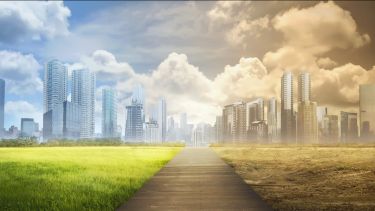Public engagement, social/ethical acceptability and responsible innovation
Climate change is a global issue, but if we were to deploy ERW in the UK, it’s going to have a real-world impact on local places and economies, as well as being shaped by the differences in local geography, ecology and land use.

How do we assess local and national support for GGR technologies like ERW?
Greenhouse gas removal technologies like ERW need a ‘social license to operate’ from various communities in the proposed locations, taking into account their needs, aspirations and concerns, whilst ensuring fairness and effectively communicating to them any potential risks and benefits.
This work package aims to identify the parameters of a social license to operate for ERW at scale, by:
- building knowledge of public perceptions and local community acceptance of ERW in the 3 field site regions, representative of major UK land uses, and how cultural and historical context shape understandings of the environmental and societal risks and benefits of deployment.
- through a novel programme of public engagement and Responsible Research and Innovation, developing upstream ‘social intelligence’ on deployment barriers and opportunities for ERW.
- contribute in-depth knowledge on ERW social/ethical acceptability to the GGR-D Hub for comparative analysis of perception, governance and ethical issues across the other GGR-Demonstrators - biochar, perennial biomass crops, peatland restoration and woodland creation and management.
We’ll be developing case studies to examine perceptions and perspectives on ERW held by different groups of stakeholders, including environmental groups, farming representatives, policymakers, tourism, and the public, to see how this might help or hinder the deployment and up-scaling of ERW.
